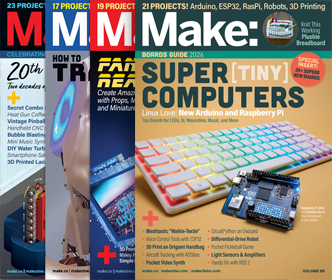A Maker's Life - a generational perspective
In this episode of Make:cast, Dale Dougherty from Make Magazine chats with Marilyn Nash and Amber Hudson, authors of ‘A Maker’s Life‘. Both of them are former teachers – Marilyn is retired and Amber works at 1st Makerspace in Indiana. They discuss the impact their book has had on readers, igniting meaningful conversations about the maker mindset among people of all ages. Amber shares the story of how she and Marilyn met and collaborated on the book, which serves as both a personal narrative of Marilyn’s life as a maker and a reflective guide for developing makerspaces.






